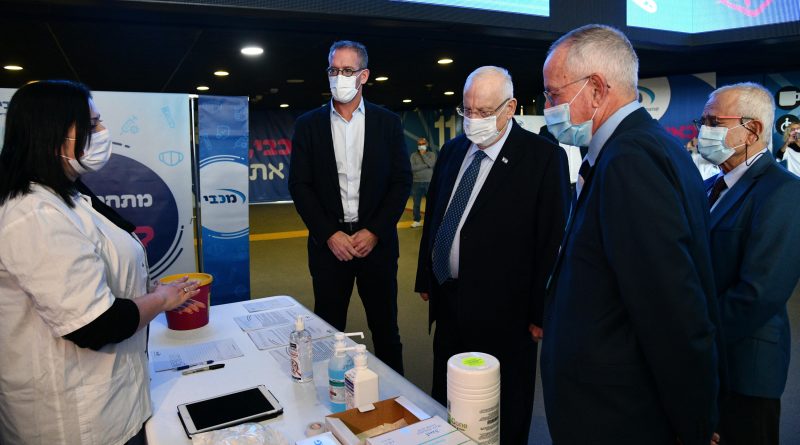Palestine Struggles with Vaccines While the Virus Transcends Borders
Juliet Nangini
Staff Writer
Israel stands tall on the international stage with its success in vaccination distribution, while Palestinians under Israeli occupation await access to vaccines. According to Al Jazeera, “[Israel] has already supplied vaccine doses to more than half of its 9.3 million people in just less than two months, making it the world leader in the vaccination drive to inoculate populations.” However, recently, Israel has been criticized for shipping vaccines overseas as Palestinians remain unvaccinated.
Israel sent shipments of extra vaccines to allies supporting a one-state solution and states that have moved their embassies to Jerusalem, such as Honduras. According to Reuters, Israel shipped 5,000 vaccines to Honduras and several thousand to the Czech Republic in an effort to engage in vaccine diplomacy. Even though the Czech Republic supports a two-state solution, the state is one of Israel’s biggest supporters.
Recently, however, Israel sent 5,000 vaccines to Palestinians in the West Bank. NBC News cites Caitlin Proctor, an associate of the Migration Policy Centre, who explains that the vaccines send are only a “drop in the ocean” for Gaza’s two million residents. Israel also agreed to vaccinate the 100,000 Palestinians who work in Israel.
The debate regarding Israel’s responsibility to vaccinate Palestinians depends on which perspective is being examined—through the Oslo Accords or the Geneva Accords. NBC News continues that the Oslo Accords, signed in the early 1990s, are a set of agreements between the Israeli Government and the Palestine Liberation Organization which gives the Palestine Authority limited responsibilities in the West Bank and Gaza. Under this, Israel would not need to provide vaccines as the responsibility of healthcare lies on the Palestinians. Contrastingly, Al Jazeera adds that under the Fourth Geneva Convention, Israel is required to enforce “the adoption and application of the prophylactic and preventive measures necessary to combat the spread of contagious diseases and epidemics” due to its duties as an occupying power. Additional tension arose recently when Palestinians accused Israel of “political interference” for hindering a shipment of Russia’s vaccine donations intended for Gaza at a military checkpoint, reports The Washington Post
Other countries have stepped in to assist Palestinians with vaccinations, taking advantage of its new diplomatic power. The New York Times describes that “the coronavirus vaccine — one of the world’s most in-demand commodities — has become a new currency for international diplomacy.” While Israel has been shipping vaccines overseas, China and India, both of whom are exporters of the vaccine, are planning to send COVID-19 vaccines to the West Bank and Gaza, along with the European Union which has pledged to provide 20 million euros for vaccines for Palestinians, says The Jerusalem Post. Additionally, Russia has donated 10,000 doses of the Sputnik V vaccine.
Along with a lack of vaccines, Palestinians are also suffering from limited resources. According to a report by the United Kingdom’s University of Bath, Gaza faces other challenges such as high rates of unemployment, isolation, and poverty—all of which present challenges to social distancing and hinder their pandemic response.
“To me, health should be beyond politics,” Palestinian Health Minister Mai al-Kaila tells The Washington Post. “We and the Israelis, the Lebanese, the Syrians, the Egyptians, we are all in the same region. We should reach herd immunity together.”
Regardless of the opposing views on vaccine diplomacy amid the Israel-Palestine conflict, the virus knows no borders.


